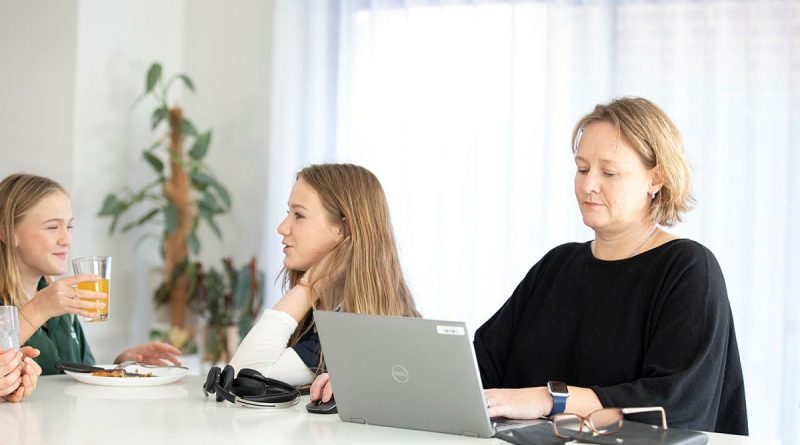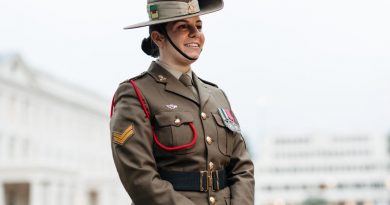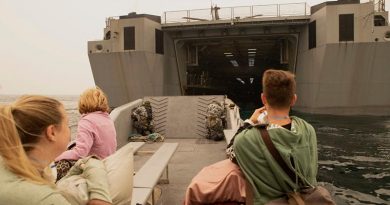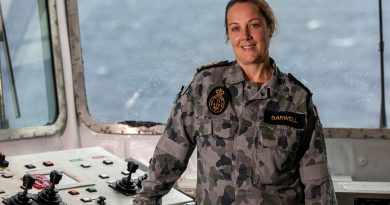Cartwheeling through flexible service

When Major Viv Blycha’s youngest daughter Alex travels across the country to compete and train for gymnastics, Major Blycha packs her laptop and takes work with her.
CAPTION: Major Vivian Blycha, right, working on her laptop with daughters beside her. Story by Jon Kroiter. Photo by Corporal Nakia Chapman.
“The flexibility is incredible,” she said.
“It’s really convenient and allows me to continue contributing to Army regardless of where I am.”
Major Blycha works full-time as a Project Lead at BHP but also as the SO2 Workforce Case Manager for the Directorate of Contingent Workforce Management – Army in Perth on a SERCAT 3 basis, which is the service category that aligns with her pattern of work.
The flexibility in both roles sets the conditions to achieve an optimal work-life balance that allows her to spend more time with her husband, Greg, and their four daughters.
“I elected to go into an Army role that is 100 per cent remote,” Major Blycha said.
“I’m able to focus on output as opposed to spending nine-to-five behind a desk.
“I can switch between jobs and tasks in and around the family’s needs, which is brilliant.”
Having grown up in Perth, Major Blycha joined the full-time Army in 1995 and graduated from Royal Military College – Duntroon in 1998.
From there she served in various roles in eastern Australia before eventually being posted to 13 Brigade in Perth, where she intended to stay.
In 2012, Major Blycha chose to transfer to the Army Reserves to remain in Perth as an instructor at the Western Australia University Regiment.
The decision has proven beneficial to the Blycha family – especially to their daughters, as they continue to go through school.
“Not having to move has certainly made my life easier with four children,” Major Blycha said.
“Stability has been great, and the girls have definitely appreciated being able to establish roots.”
Additionally, Major Blycha has appreciated being able to use the range of service categories in Defence’s Total Workforce System to find roles in Army that suit her lifestyle at any particular point.
She serves one or two nights a week, depending on the schedule of her daughters.
“Flexibility is completely the norm,” she said.
“Everybody is accepting and, importantly, the output remains the same.
“It’s about being able to support the organisation that I hold dear from a perspective of enjoying the opportunity to serve.”
.
.

.
.





